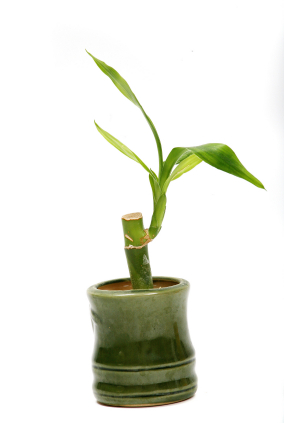My garden is nothing fancy; after all, I live in a condo surrounded by concrete in Southern California – an environment not exactly known for generous plots of land. Plus, I have dogs, so the limited amount of soil I do have doesn’t have a lot of chances of having plants that will last. Yet despite my limitations, I amuse myself with flower pots and planters, trying to make the concrete a little bit more colorful.
However, because I’m an amateur gardener, I’m not the best at estimating what I’ll need when I go shopping for foliage. I’ll think I have too few things to fill the space, and I’ll come back with too many. Then, I have to try to figure out what to do with the extra. This familiar scene occurred a year or so ago when I got back from my favorite local gardening store with two identical plants, but only had room to plant one.
I thought of this recently because I’ve been learning a bit about horticulture at the college ministry where I serve. Jesus used plants as an illustration to represent His people’s relationship with Him. As we remain in Him, we grow, just as a branch must remain in the vine in order for it to strengthen and bear fruit. This symbolic representation helps us understand what someone must do once they’ve been saved. They must remain with Christ.
However, looking at the plants I overbought, I realized something else about our growth. You see, when I bought my extra plant, I didn’t have a pot to put it in right away. It stayed in the container that the store put it in. Its identical twin, however, got placed in a large tomato plant pot, and begin to take root. It quickly took off, growing several times bigger than the plant that stayed in the smaller, yet manageable container. Both were growing, but one exceeded the growth of the other because it was given room to do so. One was constricted by its surroundings, the other flourished.
Sometimes, our surroundings constrict our growth too. We stay with what’s safe, what’s comfortable and what’s familiar, even when God is calling us to something else. It may even look like we are doing good things; after all, the container that the store placed the plant in wasn’t bad, it just wasn’t right for its future. The plant was content there, but it could only grow so much. It was healthy, but static, unable to reach further heights.
We too, may be tempted to stay with what we know rather than risk what may happened when we are transplanted to another environment. We may look “healthy” to other Christians, but we’re static – not being stretched and strengthened by God. God may want to use that new place to provide us room to grow. It may be that only in changing our environment, that He can bring forth a greater harvest of fruit.
Yet change is not easy. So we stay with what we know. Even when God wants to give us room to grow.
